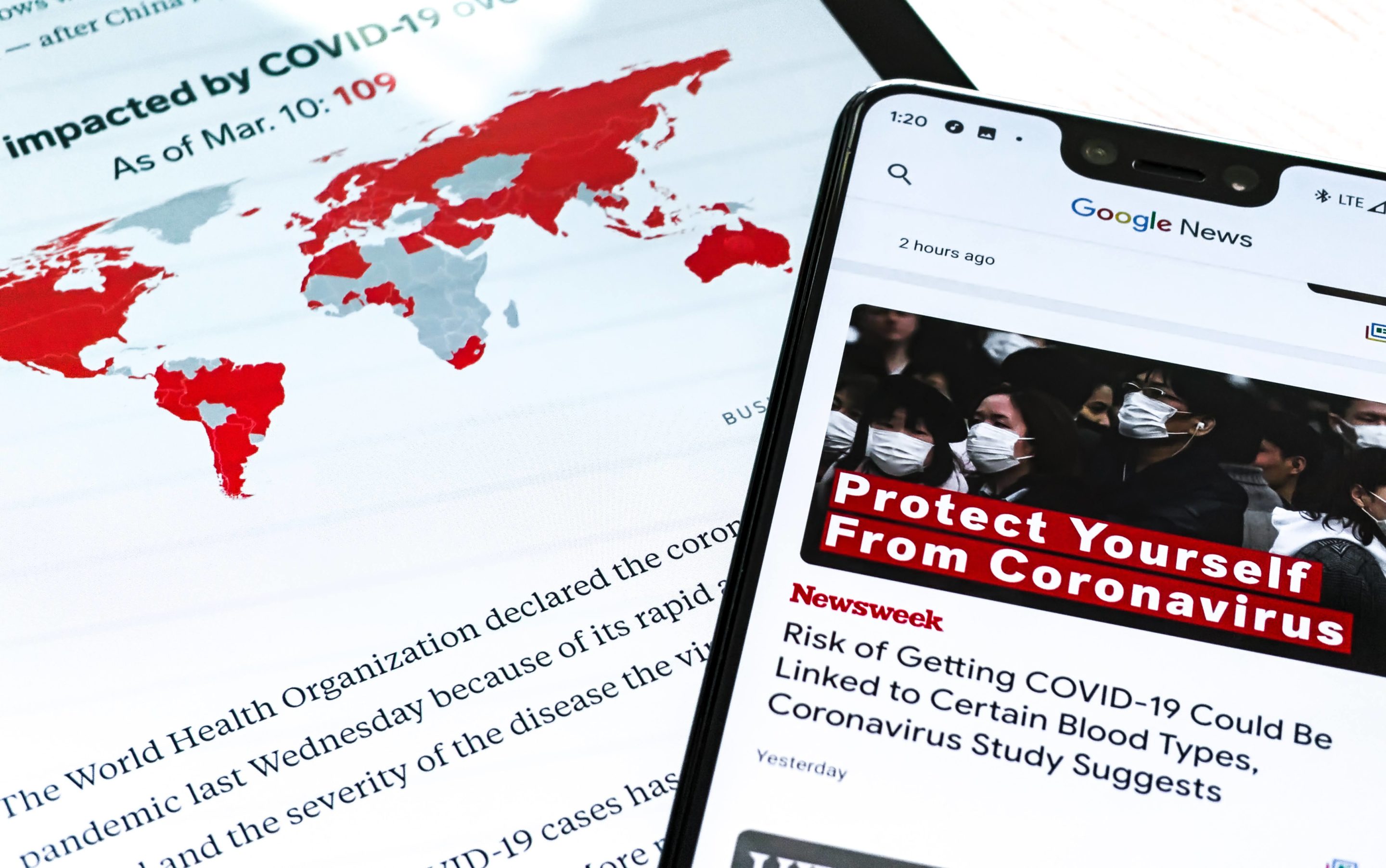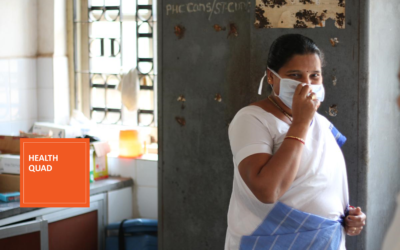In the past months, measures taken to slow the spread of the coronavirus such as social distancing have led to greater isolation and severe financial distress for many. Today, as the pandemic wears on, researchers are warning that these measures could inflict long-lasting emotional trauma, and have an undeniable impact on mental health.
For instance, almost 35% of respondents in a nationwide survey[1] in China already reported mild to severe psychological distress in the aftermath of the pandemic. Another survey, conducted in Germany[2] amidst the lockdown, indicated a mean well-being score of 50.7 out of 100 (compared to mean score of 75 for normal individuals), and many reported several distresses:
%
Reported increased levels of irritation
%
Reported worsened sleep
%
Reported experiencing more anger and aggression
Experience from past epidemics and natural calamities also indicate that this impact on mental health is likely to persist in the medium to long term. For instance, in an evaluation of mental health status among SARS survivors in Hong Kong, 47.8% experienced post-traumatic stress disorder of which 25.6% for 30 months after complete treatment for the virus[3].
We will need to develop concrete and appropriate responses to mitigate the potential fallout on mental health, both at an individual and societal level. This article aims to open a conversation on the reasons for increased stress and how each of us could contribute to the solution.
Underlying factors contributing to a rise in mental health burden
While many factors come into play, we want to bring forward four key aspects.
Continued health concerns
A vast majority of people are still panicked and afraid to catch the COVID-19 virus. SNEHA, a non-profit that operates in an epicentre of COVID-19 cases in Mumbai, observed a high degree of stigma associated with those who have contracted the disease. Frontline workers are amongst the hardest hit, being not only at a high risk of infection but also often overworked. These issues further accentuate stress levels.

Breakdown of support systems due to long-term isolation
As social beings, humans tend to rely on support systems built around friends, family and their communities. In-person social interactions are proven to increase the flow of positive hormones to our brain and help us live longer. However, these systems are built over long periods of time. The lockdown norms have thus had a negative impact on these coping systems, rendering them less efficient against stress.
Economic fallout
Several people have seen a direct financial hit to their jobs or businesses because of the lockdown. The current economic situation has led to anxiety for fear of losing one’s job, pay cuts, delays in evaluations, etc. Moreover, many who wished to change jobs before the pandemic are now faced with a lot less options. Small business owners and self-employed people also face lost revenues, unpaid bills, and having to make hard choices to maintain their workforce.
Rise in abuse
Those subjected to domestic violence had no escape from their abusers during the quarantine. Victims living in confined spaces with their abusers have been less able to seek help or escape their abuser. The National Commission for Women, which receives complaints from across India, has recorded a more than twofold rise in gender-based violence.
What can we do to best manage stress and its consequences post-lockdown
Both, individually and as a society, we can rebuild the social systems that include coping mechanisms for the psychological distress brought on by the pandemic and its aftermath. As individuals, we can follow a two step process.
Identify signs of stress
Many digital tools already exist to help us identify signs of stress. Wysa – a mental health chatbot – uses therapy-based practices and activities such as cognitive behaviour therapy, mindfulness, mood tracking etc. to help users manage their mental health. TrustCircle uses AI-driven Social Emotional Learning programs to self-reflect & journal, recognize & manage one’s emotions, and seek help remotely. When possible, we should also identify signs of stress or abuse around us and refer them to formal help networks.

Seek help
We are not alone in the battle for mental health and must seek help from mental health professionals when needed. United for Global Mental Health lists free helplines available globally for support on mental health issues and abuse. Additionally, new age mental health apps such as Sanvello and YourDost offer free access to their resources during the pandemic. They use clinically validated techniques for reducing stress and treating anxiety and depression.
The role of private and philanthropic actors in making mental healthcare accessible to all
While the public sector remains focused on battling the pandemic, private and philanthropic sector initiatives have a great role to play in helping scale community-based interventions. Only so can we make sure all populations have access to the needed mental health services.
In fact, community health workers remain the closest point-of-contact for the most vulnerable social groups affected by the pandemic. Training community health workers and doctors to detect and treat mental health issues offers a scalable model in this context. Several non-profits have already been able to use digital tools to train health workers and could offer sustainable solutions.
For instance, Project Echo is an innovative telementoring program in India. It creates a virtual community of learners by bringing together healthcare providers and subject matter experts using videoconference technology. Similarly, Atmiyata has been providing on-call counselling and training to their network of volunteers to address any COVID-19 specific mental health issues. Strengthening such community-based models will be key to act as a larger-scale coping mechanism.
We are undoubtedly facing one of the greatest healthcare and economic crisis of our times and recovery times remain uncertain. While these few examples are a great start to alleviate the impact of COVID-19 on mental health, there is no doubt that we will need more coordinated action to tackle this issue on a larger scale. Creating a mentally strong community will remain a key step in helping our societies slowly recover.
[1] A nationwide survey of psychological distress among Chinese people in the COVID-19 epidemic: implications and policy recommendations, Jianyin Qiu, Bin Shen and others
[2] The German COVID-19 Survey on Mental Health: Primary Results; Stefanie Jung Ph.D., Jonas Kneer Ph.D. & Tillmann H.C. Kruger M.D.
[3] Risk factors for chronic post-traumatic stress disorder (PTSD) in SARS survivors, Mak IW, Chu CM, and others
About the authors
Aadit Devanand is a manager at KOIS India
Shaily Tibrewala is a Senior Analyst at KOIS India




